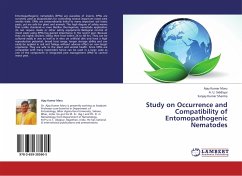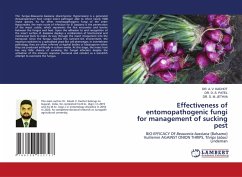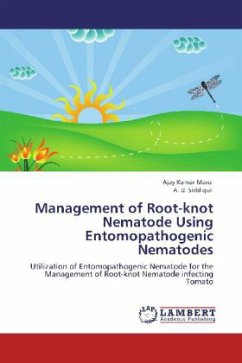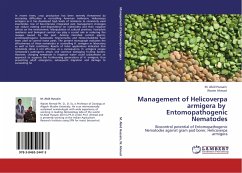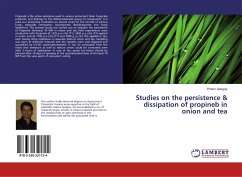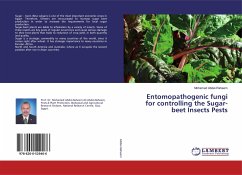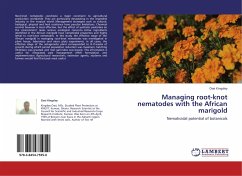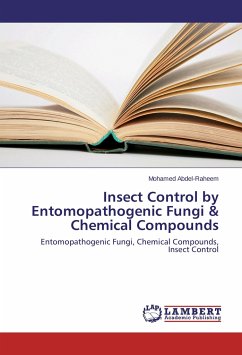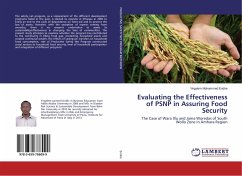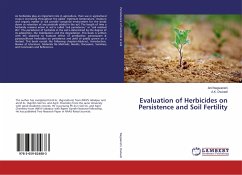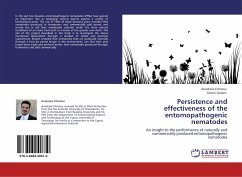
Persistence and effectiveness of the entomopathogenic nematodes
An insight to the performance of naturally and commercially produced entomopathogenic nematodes
Versandkostenfrei!
Versandfertig in 6-10 Tagen
32,99 €
inkl. MwSt.

PAYBACK Punkte
16 °P sammeln!
In the last few decades entomopathogenic nematodes (EPNs) have gained an important role as biological control agents against a variety of horticultural pests. The use of EPNs all these previous years revealed that nematodes produced in fermenters and commercially sold persist and survive less in soil than nematodes cultured under the more natural conditions of an insect host such as a larvae of the greater wax moth. The aim of the project described in this book is to investigate the above mentioned observation through a number of simple and practical experiments. Results revealed that nematode...
In the last few decades entomopathogenic nematodes (EPNs) have gained an important role as biological control agents against a variety of horticultural pests. The use of EPNs all these previous years revealed that nematodes produced in fermenters and commercially sold persist and survive less in soil than nematodes cultured under the more natural conditions of an insect host such as a larvae of the greater wax moth. The aim of the project described in this book is to investigate the above mentioned observation through a number of simple and practical experiments. Results revealed that nematodes that are produced naturally through a host do persist longer in the environment, can find their pest target more easily and perform better, than nematodes produced through fermenters and sold commercially.



